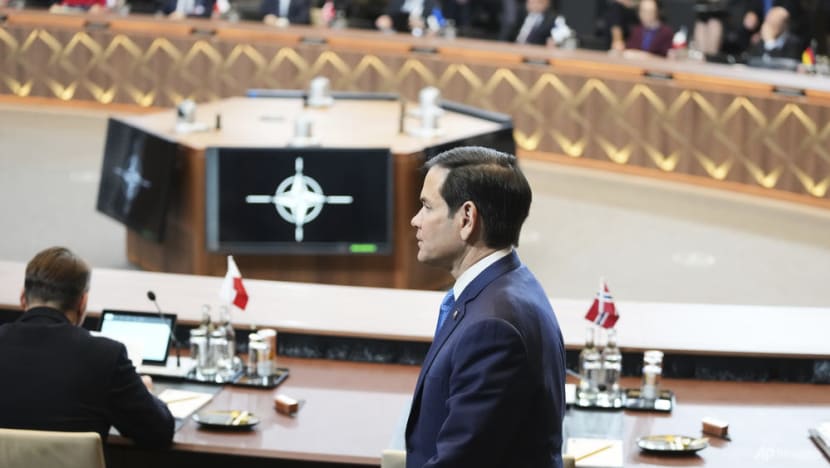Rubio: US is committed to NATO, but Europe must spend more on defence

United States Secretary of State Marco Rubio arrives for a meeting of the North Atlantic Council in foreign ministers format at NATO headquarters in Brussels, Thursday, April 3, 2025. (AP Photo/Virginia Mayo)
Rubio spoke as he met fellow NATO foreign ministers gathered in Brussels, with some European officials saying they were reassured by the renewed commitment to the alliance at a time of rising tensions over President Donald Trump's new trade tariffs.
The Trump administration's words and actions over the past months have raised questions about the future of NATO, the transatlantic alliance that has been the bedrock of European security for the past 75 years.
Rubio dismissed doubts about US commitment to the alliance as "hysteria".
"The United States is in NATO ... The United States is as active in NATO as it has ever been," he told reporters.
Trump has said the military alliance should spend 5 per cent of its gross domestic product on defence – a huge increase from the current 2 per cent goal and a level that no NATO country, including the United States, currently reaches.
Washington has also bluntly told European countries that it can no longer be primarily focused on the continent’s security.
European allies have been anxiously seeking details on the timeframe and extent to which the US aims to reduce its engagement in NATO for weeks in order to coordinate the process of a European defence ramp-up to avoid security gaps in Europe.
SPEND MORE
In Brussels, Rubio brought some element of response on that.
"We do want to leave here with an understanding that we are on a pathway, a realistic pathway, to every single one of the members committing and fulfilling a promise to reach up to 5 per cent of spending," he said, adding that this included the United States.
"No one expects that you're going to be able to do this in one year or two. But the pathway has to be real."
A European official, who spoke on the condition of anonymity, said the meeting with Rubio was "very reassuring".
"The meeting was not confrontational," the official said. "Just that allies need to do more. No bashing."
According to NATO estimates, some of the continent’s big economies, such as Italy and Spain, are among those below the current 2 per cent target, at around 1.5 per cent and 1.3 per cent, respectively. Twenty-three of the alliance’s 32 members met or exceeded the 2 per cent target last year.
"For the time being, I think 5 per cent is probably too high," Portuguese Foreign Minister Paulo Rangel told reporters, noting that Portugal – which spent 1.55 per cent of GDP on defence last year - first needs to get to 2 per cent and then have a plan to meet a new target the alliance will set at its next summit.
















